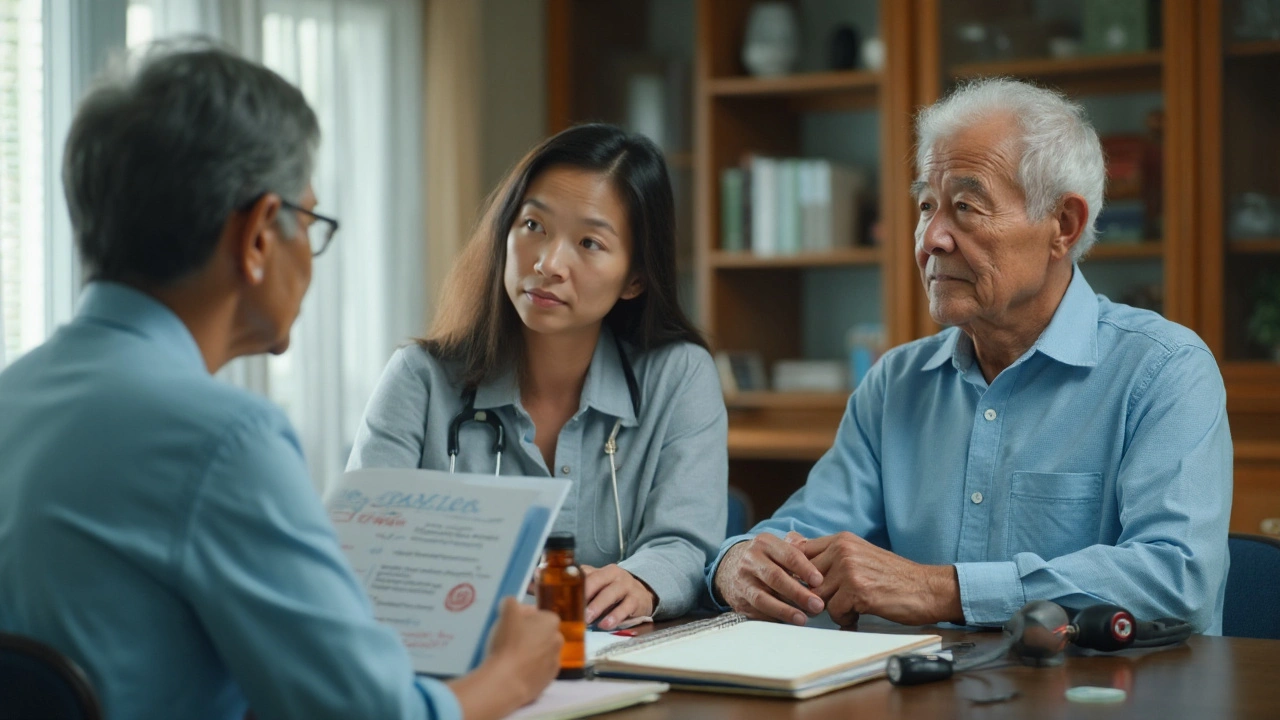Stroke Risk: Spot the Signs and Cut Your Chances
Did you know a quick blood pressure test can shave years off your stroke risk? Knowing the biggest culprits behind a stroke helps you steer clear of them. Below you’ll find the top risk factors, easy ways to check them, and real‑world tricks to keep your brain safe.
Biggest Risk Factors You Can Track
High blood pressure. This is the number one cause of stroke. If your reading stays above 130/80, you’re in danger. Grab a home cuff, measure once in the morning and once at night for a week.
Smoking. Even a few cigarettes a day raise clot chances. Quitting not only drops stroke risk but improves overall heart health.
Diabetes. Sugar spikes damage blood vessels, making clots more likely. Keep your A1C under 7% and check your feet for circulation problems.
High cholesterol. Bad LDL builds plaque that can block brain arteries. A simple blood test shows your numbers; aim for LDL under 100 mg/dL.
Obesity and inactivity. Extra weight pushes up blood pressure and bad cholesterol. Move for at least 30 minutes a day – walking, biking, or dancing works.
Practical Steps to Lower Your Risk
Start with a daily blood pressure check. Write down the numbers and share them with your doctor. If they’re high, ask about lifestyle tweaks or medication.
Swap cigarettes for nicotine patches or gum. The cravings fade in a few weeks, and your arteries begin to heal.
Watch what you eat. Load your plate with vegetables, whole grains, and lean protein. Cut back on salty snacks and sugary drinks – they both boost blood pressure.
Get regular exercise. Even a brisk 20‑minute walk after dinner lowers blood pressure and improves cholesterol.
Don’t skip your annual health screening. Blood tests, cholesterol checks, and a quick eye exam can spot early warning signs.
If you have a family history of stroke, tell your doctor. You might need a more aggressive plan, like low‑dose aspirin or a cholesterol‑lowering pill.
Finally, keep an eye on your mental stress. Chronic stress spikes blood pressure. Try short breathing exercises, meditation, or a hobby that relaxes you.
Stroke doesn’t have to be a surprise. By checking the big risk factors and making small daily changes, you give your brain a much better chance to stay healthy. Start with one habit today – your future self will thank you.
Risperidone in Dementia: Use, Risks, and Safer Prescribing Guide (2025)
Clear, evidence-backed guide to risperidone in dementia: when to use, real risks (stroke, mortality), safer dosing, monitoring, and practical non-drug options.

